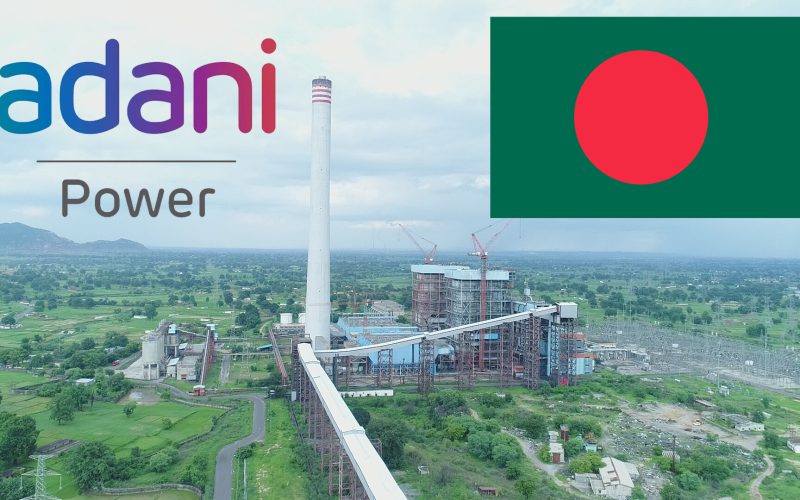Bangladesh High Court Orders High-Level Probe into Adani Power Deal
In a significant legal and political development, the Bangladesh High Court has directed the formation of a high-level investigative committee to review and evaluate the contentious power purchase agreement (PPA) between the Bangladesh Power Development Board (BPDB) and India’s Adani Power Limited. The directive, issued on November 19, 2024, responds to widespread allegations of procedural irregularities and an unfavorable deal that has sparked public outcry and criticism from various quarters.
This article provides an in-depth analysis of the agreement, the legal case, and its broader implications for Bangladesh’s energy policies, governance, and international collaborations.

Background of the Adani-Bangladesh Power Agreement
The 2017 Power Purchase Deal
In 2017, the BPDB entered into a 25-year agreement with Adani Power Limited for the supply of 1,600 megawatts (MW) of electricity from Adani’s coal-based Godda power plant in Jharkhand, India. This project was initiated under the premise of addressing Bangladesh’s energy shortage and fostering stronger bilateral ties with India.
Key aspects of the agreement include:
- Exclusive Plant: The Godda plant was constructed exclusively for exporting electricity to Bangladesh.
- Infrastructure Costs: Bangladesh financed substations and transmission lines in Chapainawabganj and Bogura to import the electricity.
- Coal Imports: The plant relies on imported coal, primarily from Adani’s Australian mines, increasing operational costs.
While the agreement promised to bolster Bangladesh’s energy supply, it has faced severe criticism for being lopsided, heavily favoring Adani Power.

Why the Deal is Controversial
High Tariffs
Critics argue that the electricity costs under the Adani agreement are disproportionately high compared to local or alternative energy sources. The reliance on imported coal further escalates costs, burdening Bangladesh’s economy.
Opaque Negotiations
The deal has been criticized for lacking transparency, with limited public or parliamentary scrutiny. Concerns about the absence of competitive bidding and stakeholder consultation have fueled allegations of procedural flaws.
Environmental Concerns
The agreement’s reliance on coal contradicts Bangladesh’s commitments to the Paris Agreement and its stated goal of transitioning to renewable energy.
Benefit Disparity
Activists and energy experts claim the agreement disproportionately benefits Adani Power at the expense of Bangladesh’s economic and environmental interests.

The High Court’s Directive
Legal Petition and Court Ruling
The High Court’s directive followed a writ petition filed by Advocate Abdul Kaiyum, who represented civil society activists and concerned citizens. The petition highlighted potential violations of public procurement standards and alleged corruption.
Key points of the High Court’s order:
- Document Submission: BPDB and relevant agencies must submit all documents related to the agreement within a month.
- Special Committee Formation: A high-level committee of energy and legal experts will review the agreement and submit a report within two months.
- Reevaluation of Interests: The court asked why the agreement should not be canceled or renegotiated if found detrimental to national interests.
Economic Implications
Financial Burden on Bangladesh
The deal’s high tariffs and infrastructure costs have placed significant financial pressure on the BPDB, which already operates under subsidies to make electricity affordable for consumers. These challenges exacerbate Bangladesh’s fiscal deficit and energy-sector debt.
Impact on Domestic Energy Sector
Critics argue that prioritizing imported coal-based electricity undermines the development of Bangladesh’s domestic energy sector, including renewable energy projects.
Environmental and Social Dimensions
Coal Dependency vs. Renewable Transition
Bangladesh’s reliance on coal imports under the Adani deal contradicts its commitment to reduce greenhouse gas emissions. Environmentalists have warned that such projects hinder the country’s transition to renewable energy.
Public Perception and Protests
The controversy has sparked public backlash, with protests from civil society organizations and environmental groups demanding greater transparency and accountability in energy agreements.

The Broader Context: Energy Politics
India-Bangladesh Relations
Cross-border energy projects are a vital component of India-Bangladesh relations. However, imbalanced agreements like the Adani deal risk straining bilateral ties.
Adani Group’s Global Scrutiny
The Adani Group has faced allegations of exploiting developing countries through one-sided agreements. Similar controversies have surfaced in Australia and Sri Lanka, raising questions about its global business practices.

Potential Outcomes of the Probe
Renegotiation or Termination
If the investigation confirms that the agreement is unfavorable, the Bangladesh government may renegotiate terms or seek its termination.
Legal and Policy Reforms
The case could prompt the government to reform legal frameworks for public procurement and cross-border agreements, ensuring greater transparency and competitiveness.
Shift to Renewable Energy
The controversy may accelerate Bangladesh’s efforts to diversify its energy mix, prioritizing investments in renewable energy over fossil fuels.
Conclusion
The Bangladesh High Court’s decision to probe the Adani Power agreement marks a critical moment for the country’s energy sector and governance. By addressing allegations of unfair terms and procedural flaws, the investigation has the potential to safeguard Bangladesh’s economic and environmental interests.
This case also serves as a broader lesson for countries negotiating international agreements, emphasizing the importance of transparency, accountability, and equitable partnerships. As the investigation unfolds, its findings could reshape Bangladesh’s energy policies and set a precedent for future cross-border collaborations.









